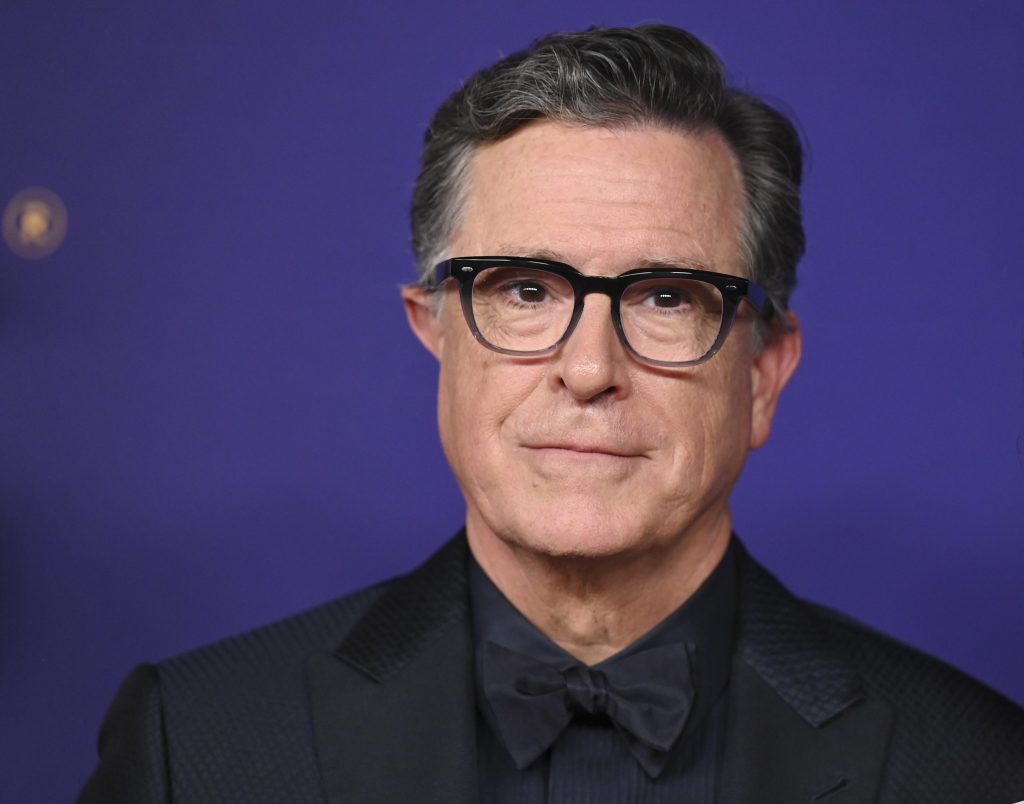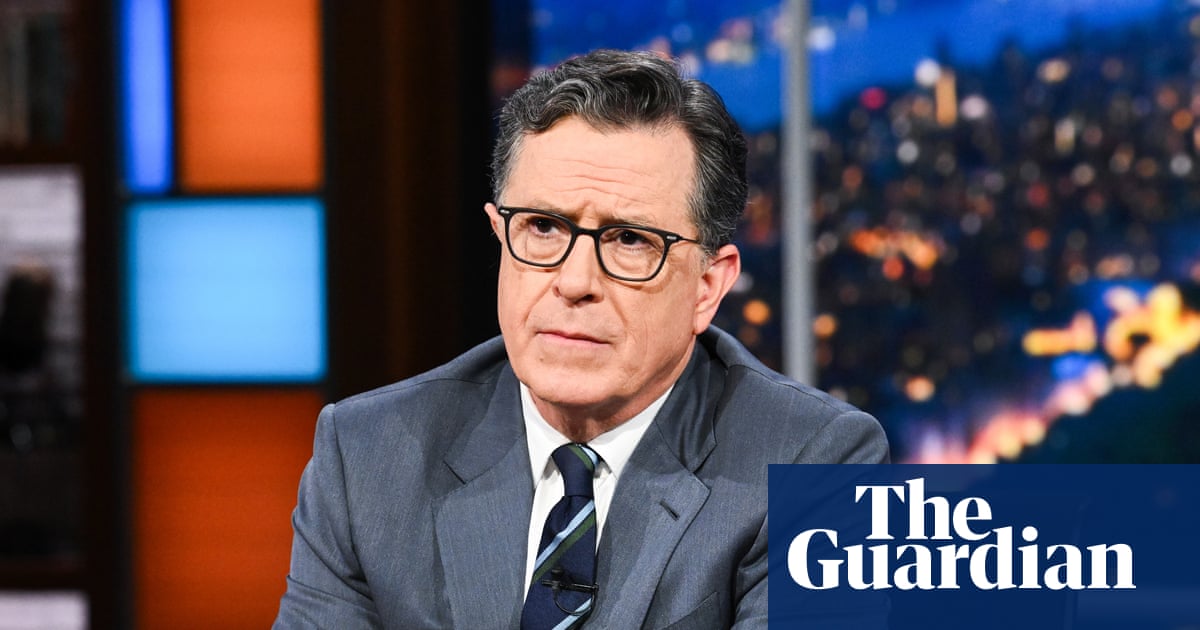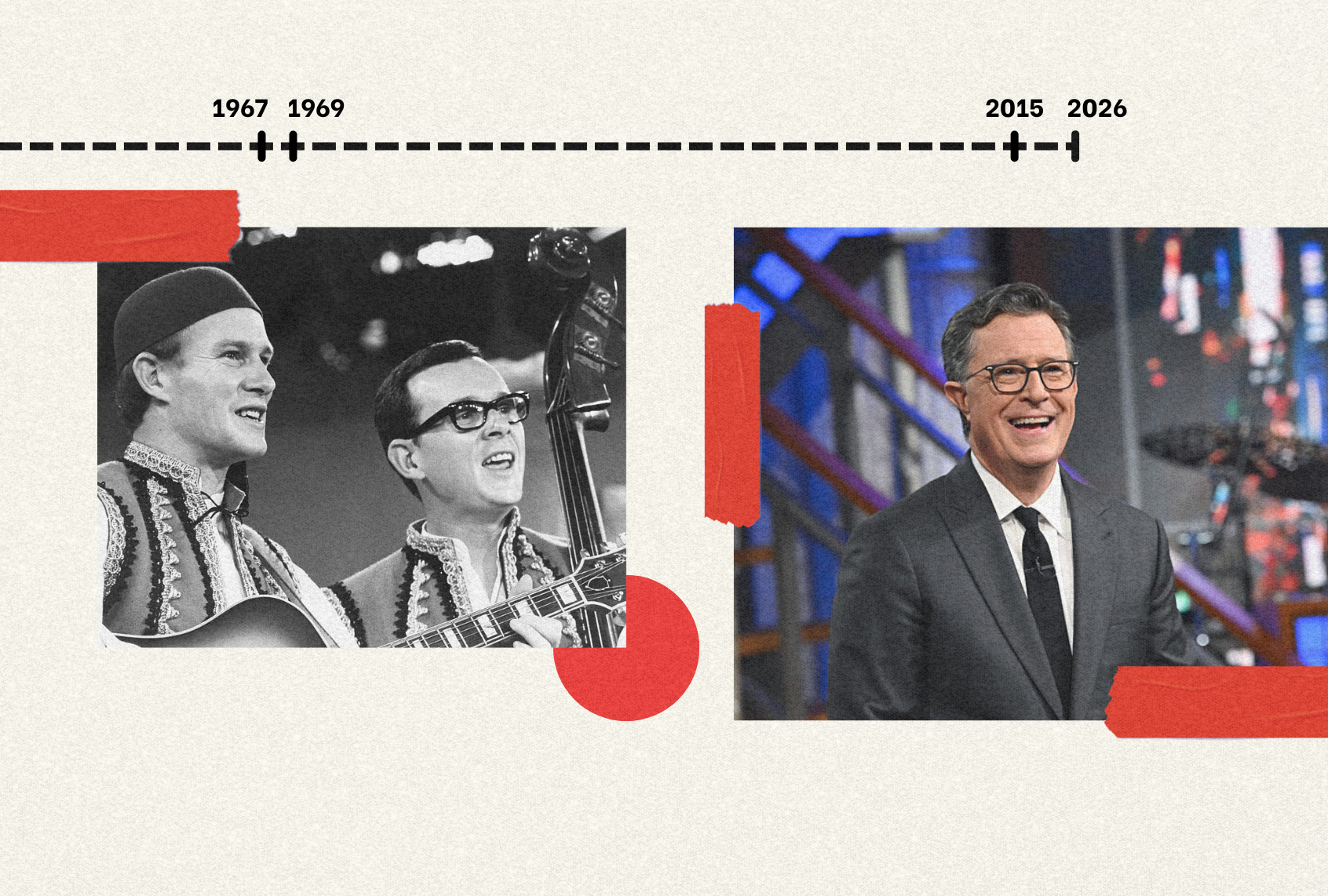T4K3.news
Colbert's Late Show Canceled Amid Political Pressures
Stephen Colbert's Late Show ends, raising concerns about media influence from political figures.

The end of Stephen Colbert's Late Show reflects a deeper cultural transformation in American comedy.
Stephen Colbert's Cancellation Signals Shift in Late Night Comedy
Stephen Colbert's cancellation of The Late Show has sparked significant discussion about the changing landscape of late-night television. This event was marked by a combative monologue where Colbert directly addressed Donald Trump, hinting that political pressures may have led to his dismissal. Many influential figures in comedy came together to support Colbert, with Jon Stewart suggesting that CBS bowed to Trump’s influence. The landscape has evolved since the days of Stewart, with an oversaturation of similar comedic styles and a shift in public interest towards non-political humor. Colbert’s approach, criticized for lacking the edge of its predecessors, highlights the struggle of political comedy in an era where viewers can easily find alternative content online.
Key Takeaways
"Fear and pre-compliance is gripping all of America’s institutions at this very moment."
Stewart highlights the broader implications of Colbert's firing beyond just comedy.
"Clapter is easy; good comedy is hard."
This statement captures the struggle comedians face in a crowded market.
"Colbert doesn’t matter. Nothing does."
A stark reflection on the current political climate and its impact on satire.
"Losing a familiar left-wing TV host feels like an insult on top of injury."
Stewart's words emphasize the sense of loss experienced by liberals in media.
Colbert's departure from late-night television is not merely about one show, but indicates a deeper shift in American cultural norms. Comedians today face challenges from both the immediate political landscape and an increasingly divided audience. The saturation of 'clapter' humor, defined as laughter mixed with applause for progressive ideals, has also diminished its impact. Colbert's inability to adapt to a rapidly changing media environment reflects a greater issue within late-night formats—viewers are seeking substance that cuts through oversimplified jokes. This has led to a significant decline in the influence of late-night hosts, who once served as critical voices that shaped political discourse.
Highlights
- The world of late-night comedy has changed forever with Colbert's departure.
- Is political humor still effective in today's fractured media landscape?
- Colbert's show ending may mark the decline of a comedic tradition.
- Late-night hosts are struggling to stay relevant in a new entertainment era.
Political Sensitivity of Late Night Comedy
The cancellation raises concerns about political influence over media content, reflecting growing anxiety around freedom of expression in comedy.
The future of late-night comedy remains uncertain in a rapidly changing media climate.
Enjoyed this? Let your friends know!
Related News

CBS cancels Stephen Colbert's Late Show amid controversy

Stephen Colbert responds after Late Show cancellation
:max_bytes(150000):strip_icc()/stephen-colbert-david-letterman-late-show-072625-d656ace7949241e38625bb7b9915252b.jpg)
David Letterman lashes out at CBS and Skydance over Late Show cancellation
CBS cancels Stephen Colbert's Late Show

CBS cancels Stephen Colbert's Late Show amid pressure

Jay Leno shares thoughts on political comedy's risks

Comedians stand together for Stephen Colbert after show cancellation

Jon Stewart stands against CBS cancellation of Late Show
